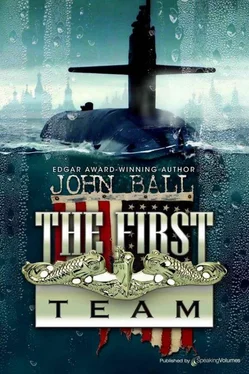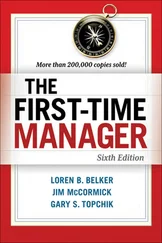Джон Болл - The First Team
Здесь есть возможность читать онлайн «Джон Болл - The First Team» весь текст электронной книги совершенно бесплатно (целиком полную версию без сокращений). В некоторых случаях можно слушать аудио, скачать через торрент в формате fb2 и присутствует краткое содержание. Год выпуска: 2013, Жанр: Триллер, на английском языке. Описание произведения, (предисловие) а так же отзывы посетителей доступны на портале библиотеки ЛибКат.
- Название:The First Team
- Автор:
- Жанр:
- Год:2013
- ISBN:нет данных
- Рейтинг книги:5 / 5. Голосов: 1
-
Избранное:Добавить в избранное
- Отзывы:
-
Ваша оценка:
- 100
- 1
- 2
- 3
- 4
- 5
The First Team: краткое содержание, описание и аннотация
Предлагаем к чтению аннотацию, описание, краткое содержание или предисловие (зависит от того, что написал сам автор книги «The First Team»). Если вы не нашли необходимую информацию о книге — напишите в комментариях, мы постараемся отыскать её.
Student protesters are being slaughtered in the Midwest.
The Jewish pogroms have begun.
You are now living in Soviet — occupied America!
One nuclear submarine and a handful of determined patriots against the combined might of Russia and Soviet-occupied America… The Most Explosive and Gripping “What If” Novel of Our Time!
First published January 1971
The First Team — читать онлайн бесплатно полную книгу (весь текст) целиком
Ниже представлен текст книги, разбитый по страницам. Система сохранения места последней прочитанной страницы, позволяет с удобством читать онлайн бесплатно книгу «The First Team», без необходимости каждый раз заново искать на чём Вы остановились. Поставьте закладку, и сможете в любой момент перейти на страницу, на которой закончили чтение.
Интервал:
Закладка:
At sixty-two years of age he sat in his chair, the sharp memories still acid-fresh in his mind, trying to make the pieces fit together as he wanted them to. Political expediency, the need to hold his own job against a tidal wave of internal opposition, could explain the premier’s astonishing change of attitude. The harsh, belligerent statements being made now simply did not fit with the man he had met and talked to in such a close and candid relationship. The refusal of Zalinsky to see him was a pinprick, brought on because the ridiculous administrator presently occupying the White House hadn’t been told about the personal relationship between his premier and the man who had proposed to call on him. When he did find out, it would be an altogether different matter.
Then through the senator’s sagging body an electric current of realization suddenly took hold; he physically responded and sat up straighter in his chair. All at once, in a sudden flash of inspiration, he saw the whole thing, he gulped in a deep lungful of air and marveled that it had taken him so long. His hands tightened, his jaw muscles started to work, and a fresh supply of adrenalin began to feed into his bloodstream. As the truth dawned, in its fresh strong light everything that had been troubling him so much stood clearly revealed. It all fitted together and it was right, as he knew it had to be. For the first time he understood what the premier had meant when he had said that he expected to welcome his senatorial guest back as President of the United States. Because now it could very well be.
He was so completely elated by his discovery of the truth that even the knowledge of his almost certain elevation to the presidency became secondary. The United States was not in any danger — it had never been. The premier was a man of great political sagacity; the whole world was aware of that. When he had taken office he had inherited a vast military machine, one which had been built up with almost ruthless singleness of purpose at the harsh expense of the civilian economy. And, most important, many of the men who had put the premier into power had been responsible for the almost intolerable burden of military costs.
That situation could not continue indefinitely, as the premier knew very well. Yet if he were to begin reducing the armed forces, as Fitzhugh himself had done, his supporters would have removed him without ceremony and installed someone else who would be more responsive to their wishes. Militarists were the same the world over.
Therefore the premier had made one of the boldest and most astute political moves in world history. He had had his strategists map out the stunning surprise campaign which had brought down the United States literally before the Air Force planes could get off the ground or the ground combat units brought into effective action. Some people had died on both sides, but compared to the staggering toll a real world conflict would have entailed, losses had been slight. That eliminated the superpower against which the enormous military machine the premier controlled had been aimed. With the United States no longer in a provocative military posture, the need for the premier’s armed might disappeared. The premier had been entirely truthful when he had said that his country did not desire to take over millions of square miles in America; the enormous territories he already controlled could supply all of his present and future needs for as far as any man could forecast.
The conquest of the United States had simply been a brilliant move to deny his own military establishment any further right to exist.
Japan had been conquered by the United States in a long and bloody conflict with intense hatreds generated on both sides. Yet after the peace had been signed, Japan had forged rapidly ahead in far better condition than if it had not been defeated in the first place. Now Japan and the United States were friendly powers, granted that restrictions had to be imposed to curtail low-priced imports from the Far East from entering the United States in sufficient quantity to compete effectively with the products of America’s far more advanced economy.
The war, such as it had been, was over. Zalinsky was a brief stopgap and nothing more — a futile figurehead. After war comes peace, the inevitable meeting of the two sides to agree upon the terms of settlement. The President of the United States had, for all practical purposes, abandoned his office. Furthermore, he had never met the premier. But Senator Fitzhugh, who sometimes liked to think of himself in the third person, had. He was in Washington, and what was far more important, he was-the undisputed leader of the peace movement in the United States government.
Then he knew. Within a few days time he would be summoned to speak for his country, for he alone knew the truth as it had just been revealed to him. He might meet the premier again in Europe or even on American soil — it made no difference. Between them the artificial dispute would be settled with a proper show of mutual negotiation. The premier would emerge as the man who had conquered America and his position would be unassailable before his own people. He would sweep the militarists out, reduce his armed forces to token units, and get on with the rehabilitation and development of his civilian economy.
As the peacemaker, Fitzhugh knew, he himself would return home in triumph, revealed as the one man who had been right all along. After that his call to his country’s highest office would be all but automatic. Solomon Fitzhugh, President of the United States. It had a fine ring to it, a ring of rightness.
Only one thing troubled him after that. When he had seen the premier for the first time he had hesitated to bring up the conspicuous anti-Semitic policies of his government — it had been at that time an internal matter affecting the premier’s country only and an intrusion by an outsider might have destroyed the fine rapport which had been established.
The singling out of the Jews worried Fitzhugh. If it went on too long it could have serious consequences. On his next conference with the premier, whether it would be slightly awkward or not, he would have to bring it up. His only son was dating a Jewish girl, and while a marriage undoubtedly would not take place, she was a very nice young person, well-behaved, and deserved his protection.
For the past several weeks Hewlitt had had a growing sense of unreality. The Billiken in his mentality told him that there was no one named Zalinsky in the White House — that no such person would even be admitted to the grounds, and that the cloak and dagger atmosphere into which he had been casually wandering was a celluloid creation as unreal as the monsters in an amusement park go-cart ride.
But the fact remained that he was in a very real house, surrounded by actual people despite their difference in ethnic background, and that a code word he had been anxious to hear had just been spoken to him with unmistakable clarity.
The pieces were all there — it was the total that came out wrong.
Asher was an ancient name, one of the twelve tribes of Israel, but it was not common. The man before him was Asher, he had announced that, but he did not fit the image of Asher as he should have been.
Hewlitt looked at his glass to see how much he had drunk of his cocktail. “That’s an unusual name,” he said, sparring for time and more data.
“I thought that you might have heard it before,” Frank answered.
Hewlitt saw the opening and took it. “I have, but I’m trying to remember where.”
Frank took his time, sipping his drink with apparent concern. “Maybe from Major Landers,” he said.
That, Hewlitt knew, was conclusive. That fact that he had known Frank for more than two years made it difficult to accept him in this new light; by logic and rights it should have been someone who normally would have been at a reasonably important echelon of the government.
Читать дальшеИнтервал:
Закладка:
Похожие книги на «The First Team»
Представляем Вашему вниманию похожие книги на «The First Team» списком для выбора. Мы отобрали схожую по названию и смыслу литературу в надежде предоставить читателям больше вариантов отыскать новые, интересные, ещё непрочитанные произведения.
Обсуждение, отзывы о книге «The First Team» и просто собственные мнения читателей. Оставьте ваши комментарии, напишите, что Вы думаете о произведении, его смысле или главных героях. Укажите что конкретно понравилось, а что нет, и почему Вы так считаете.












